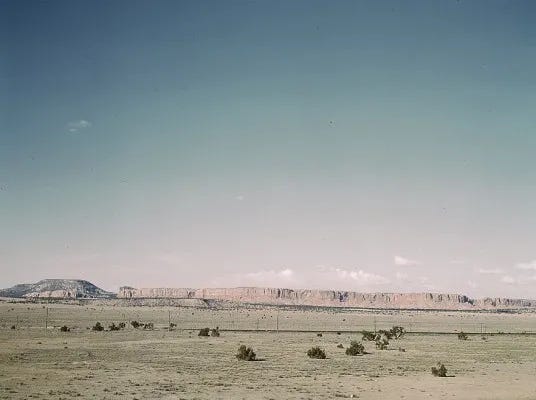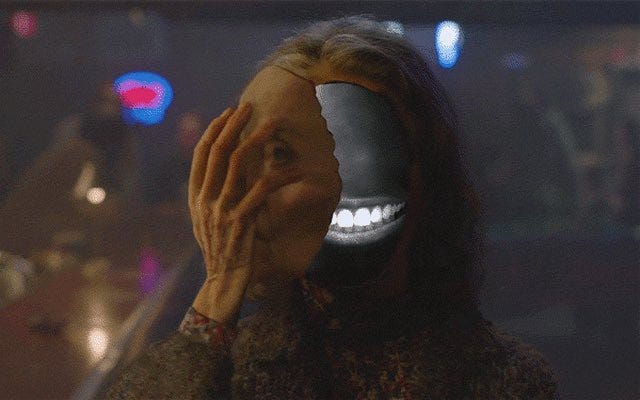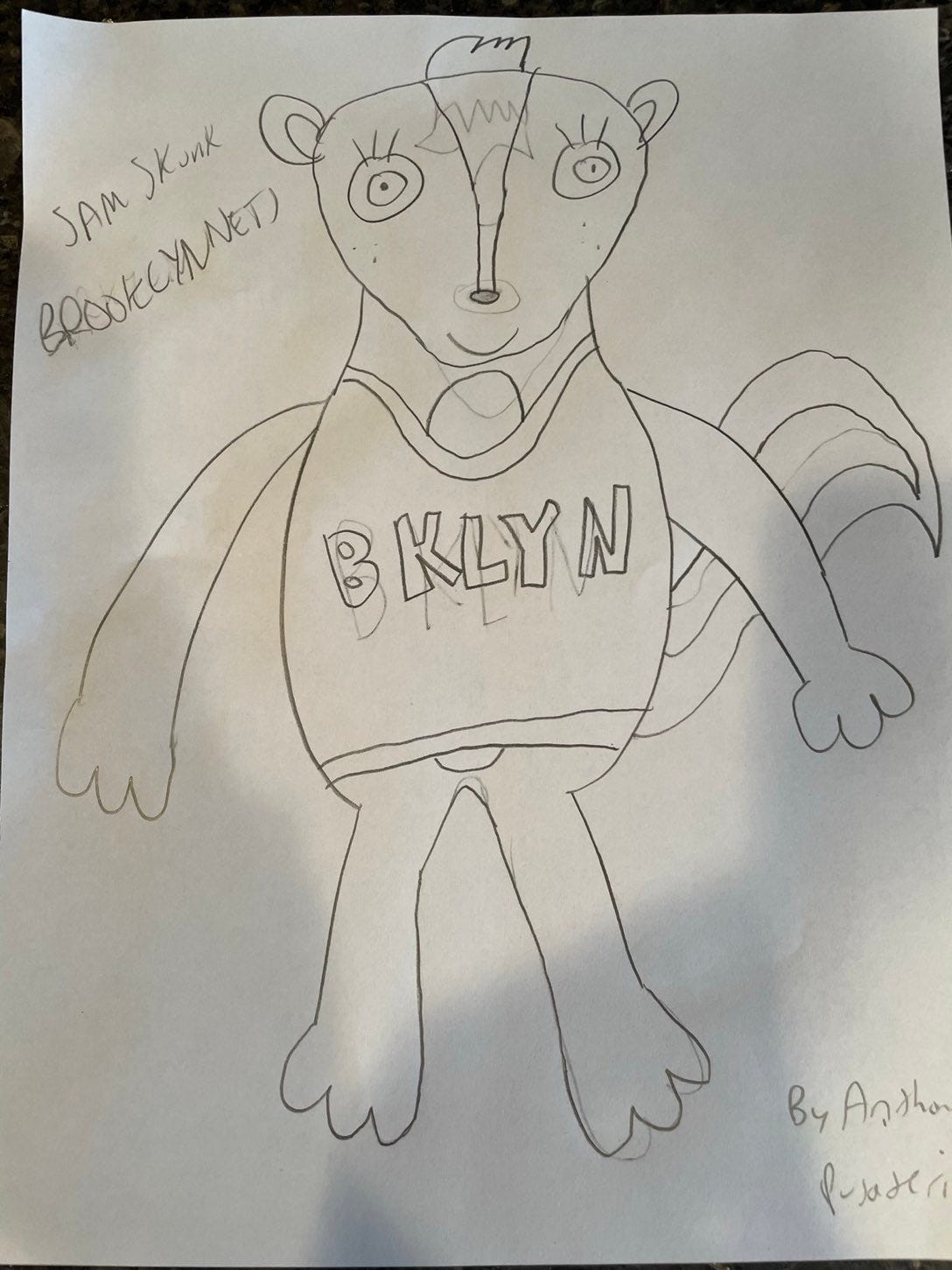Three Internet Things 1/26/24
What writer layoffs mean for readers; the Sol Brah face reveal; an endorsement of Sam Skunk
What happens when the reader’s internet disappears?
The trajectory by which the Internet crumbles into a single, shitty website has intensified dramatically in the new year, most recently with the news of layoffs and brand fold-ins at too many notable publications and websites to count. These are catastrophic developments for the writers losing their already precarious financial lifelines, the type of unavoidably evident phenomenon that reminds me, a far-from-established independent “Internet writer,” not to quit my day job. The last week or so has been full of elegiac pieces by former contributors at places like Pitchfork, odes to places that had real cultural power, however trivial it seems now. I’ve pored over these pieces with respect; I’ve also wondered, selfishly, what this mean for the great mass of readers, myself included, for whom the institutional Internet has been something of a signpost.
Venture capital firms are in the process of deeming writers totally unnecessary; so, too, have these forces decided that the reader-commenter (or, worse yet, the silent reader-lurker) are not worth catering to. As sites and publications shut down and writers regroup (or abandon their work out of necessity altogether), readers lose. The Internet’s public face, as has been well-documented, is decaying; people move to Discords, Signal channels, group DMs, away from a mode of accessible online production and into private hermitages. This development may be all well and good for the initiated: they can speak more freely, winnow their network down to a chosen few, share knowledge and resources amongst themselves. But for the great masses of readers and online spectators, it is a tremendous loss. Some combination of reckless corporate cuts, the revelation that data is not as valuable as it seems, and the proliferation of bots watering down the value of a human click has made it such that the public-facing Internet, such as it is, is no longer profitable to the people who bankroll it. As such, it is collapsing.
Readers lose when talented writers are fired, surely. But they also lose when these writers are forced into their own little archipelagos of independent Substacks, niche, nascent blogs, undiscovered Patreons, paywalled Discords. The power of cultural institutions, as fun and popular it has become to mock them, is that they are an accessible place for both the reader and writer to congregate and begin. Canons and lists are routinely ridiculed by those in the know as a sort of virtue-signaling, but for every lost canon or decimated cultural authority there is a kid who doesn’t get into music or writing for lack of an obvious entry-point, whose life is not meaningfully altered by decades of people assigning meaning to art and who is instead doomed to drift aimlessly down an unfulfilling, algorithmically-generated river. What I mean to say is that, sure, blogging is back, and there’s a meaningful sense of creativity and independence in the online cultural and critical zeitgeist right now, but perhaps this energy needs a center to bind it, lest it all turn into noise. A new authority may emerge from the ashes; I may be too old to see it.
The Sol Brah face reveal; or, a new manosphere struggles to be born
As best I can tell, the biggest story of the young year on right-wing, esoteric fitness Twitter has been the Sol Brah face reveal. If that sentence means nothing to you, well, good, it shouldn’t. Right-wing esoteric fitness Twitter is something like Goop for men, a real cesspool of hideous racism and reaction, some practical fitness and lifestyle advice, and a suite of unmistakably wrong health proclamations; as an ecosystem, it’s something like a car crash, which, well, explains the inability to avert my gaze. Take into account the fact that Elon Musk has rearranged Twitter to inundate feeds with both right wing content writ large and right wing content that you’ve previously viewed in specific, and the whole world has become something in which I feel regrettably well-versed.
Over the course of my time observing this space, I’ve come to view a man who calls himself “Sol Brah” as my favorite huckster of the litter. Sol Brah is, for my money, the avatar of this space mostly likely to cross over into the mainstream consciousness, whatever that might mean. While he does all of the things you’d expect—sells shorts and supplements, maintains connections to the crypto-utopian disaster Praxis Society—his affect is that of an ancient Roman golden retriever. Like all of these guys (they’re almost all guys), he drapes himself in a tremendous veil of ironic detachment; where for most of these people, the irony is little more than a cowardly mechanism through which they might establish probable deniability to distance themselves from their despicable reaction, Sol Brah seems a bit too dumb to get it all, and so the joke ends up being on himself as much as anybody else. The ambiguity of the absurdity is the whole thing with this guy—does he actually believe the reactionary shit he’s spouting, does he actually eat raw ground beef, are those steroid forearms? Bodybuilder types, ironic Pepe-coded types: if their undoing is the fact that they’re doing too much, then Sol Brah’s grotesquerie is kept somewhat in check by his inability to embody his own implications. He’s likely too dumb for it to be intentional.
Like many in this milieu, he has long cultivated a certain aesthetic: doric columns, waves lapping up on feet in the tropics, laughably vascular arms. He has not, however, shared his face. That is, not until this week, when he posted a video with the caption “A new era begins….” The video captures him from behind, stumbling shirtless and ambling without balance through what appear to be ancient, tropical ruins. The video is interspersed with audio cuts of deep breathing that are, unintentionally, funnier than nearly anything I’ve seen in the past year. He gallops to the beach, at which point a dramatic cut to black, a vaguely oriental cymbal clanging, and, tada, a face.
The clip is both perplexing and deeply embarrassing. It has also left me thinking, for an inordinate amount of time, about the nature of the face reveal. It feels to early to say that we’ve entered a “face reveal era,” although the preconditions appear to be there: the type of internet content-creation practiced by anonymous “creators” seems to be running its course, even as the off-ramps to traditional media crumble. The face reveal allows the anonymous creator one last cathartic gasp, a final moment to cash in on the unbecoming, gossipy curiosity that we have with faceless personae. For an online personality, the face reveal is something like a suicide: it empties out the mystique that, more often than not, serves as a substitute for real substance. That’s why it’s so jarring when the lights come on at the bar, right?
There is, of course, the more sinister undercurrent of face reveals in the right-wing space, exemplified of course by Bronze Age Pervert, another right-wing bodybuilder type who affects a non-American accent, albeit more racist. This lineage is a darker one: not face reveals as the internet coming to its predictable end, but the internet becoming a space more readily eager to accept reaction, racism, and perverse vitriol into its mainstream. The right-wing face reveal, in this context, announces proudly an intention to collapse the ironic distance, to take ownership of these demented ideologies, a calculated gamble to cash out in a right-wing mediasphere that is increasingly comfortable in the light of day. The thing I think most about is how desperately, beneath the posturing, these men hope for strangers on the internet to find them attractive. I wonder, sincerely, how many hours the man who calls himself Sol Brah spent mashing his tongue into the roof of his mouth to re-define his jawline, all to have his craven followers critique his physiognomy and photoshop calipers onto his face when finally posted. That’s the thing about ironic reaction—whether or not you believe the shit you’re saying, it’s a sure thing that there’s someone out there who does.
The case for Sam Skunk at the Brooklyn Nets’ mascot
It’s hard to read about the Brooklyn Nets anymore; it’s even harder to watch them. In the new year, I’ve strived to do as little of both as possible. But, against my best interest, I still keep an eye out for Nets Internet esoterica, a self-destructive impulse that has led me to discovering Sam Skunk. Sam (short for Samantha) Skunk is a mascot prototype ginned up by Twitter user Anthony Pusateri for the Brooklyn Nets, a team that is currently without a mascot. She is, well, a skunk: black and white with sky blue eyes, a pink nose, freckles, and dainty eyelashes.
Over the past few weeks, Pusateri has sent a mockup of Sam Skunk to various online Nets influencers with an almost religious fervor. At first, I laughed at his Tweets; before long, I came to understand them as intuitively, almost undeniably correct. Pusateri, who is not a Nets fan, identifies in the Brooklyn Nets organization a complete and total lack of spirit and fun. The Nets, an organization that have long struggled to establish either an identity or a fanbase of their own, need a mascot. As a child, my experience at Nets games was meaningfully enhanced by seeing Sly Fox, the jersey-wearing mascot, fly around the court; later in life, the Austere Brooklyn Knight was a first sign among many that my favorite organization did not quite have a plan for itself. That the Nets, a team so desperately short on whimsy and tradition, have gone this far without a mascot is a sign of complete and total mismanagement.
Pusateri’s pitch is simple: the Nets need a mascot. Sam Skunk rhymes with slam dunk. Her colors, black and white, are the Brooklyn Net’s colors. New York City, of which Brooklyn is a component borough, has skunks. It’s a position I’m willing to endorse.
It might seem like I’m joking; I’m actually not. In a bout of aimless background research, I discovered that in 2017 a man named Anthony Pusateri petitioned the town of Bradenton, Florida to replace a Confederate monument with a statue commemorating “Snooty the manatee,” a manatee who had lived in Bradenton for nearly 70 years. I’m not sure whether he and Sam Skunk’s Pusateri are the same man; it’s not clear what answer would more completely floor me with admiration for the generosity of the human spirit. So, yes, I actually mean it, I want the Nets to have a mascot and I want it to be a skunk named Samantha, and I think that a life without whimsy is indistinguishable from one without love.






I'm the Anthony Pusateri who concocted this "Sam Skunk" mascot prototype for the Brooklyn Nets. The guy who wanted to replace a Confederate monument with a Snooty the Manatee statue in Florida was a completely different Anthony Pusateri, so I'm not related to him. Simple as that.